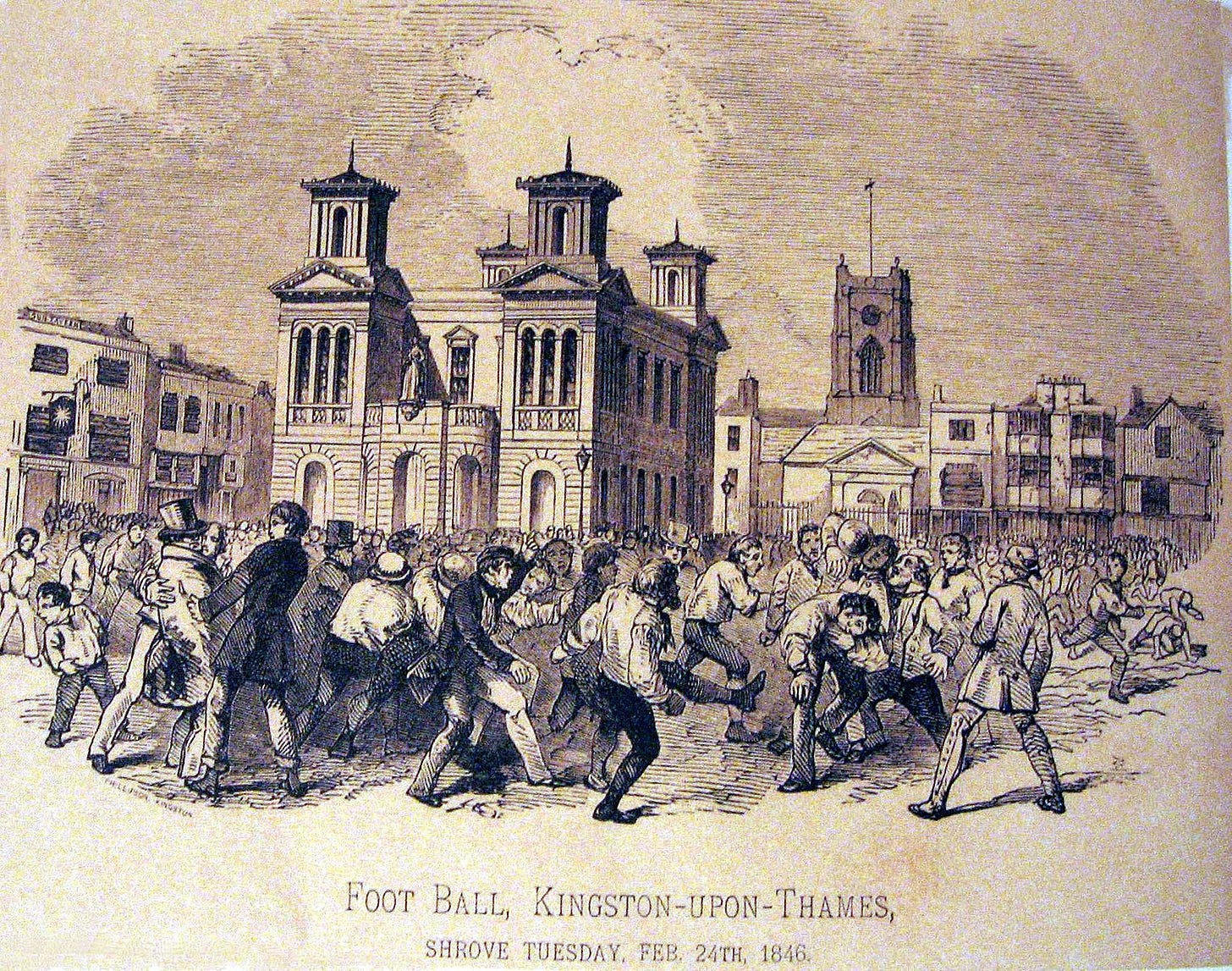Terminology... Football, Rugby, Soccer, and Varsity
This is article #2 in a series covering the origins of football’s terminology. All are available under the Terminology tab above. My book, Hut! Hut! Hike! describes the emergence of more than 400 football terms.
Across the world and back to ancient times, men competed in games that involved kicking, batting, or throwing a ball into their opponent's goals. Our gridiron game descends most directly from English folk contests where young men from nearby villages kicked an inflated pig's bladder from their village into the neighbor's. The annual pig slaughter, which supplied the kickable bladders, came after harvest, so they scheduled the games as the weather turned chilly.
As a kicking game, it became known as football. Football's rules varied from one locale to the next until a few chaps created the Football Association and established formal rules in 1863. The Association rules did not allow players to touch the ball with their hands or arms, while a similar game played at The Rugby School in Warwickshire allowed players to pick up and run with the ball. This game became known as rugby, while the no-hands game remained football.
The zany students at the University of Oxford in the 1880s created slang terms by adding -er to the end of certain words. So rugby became "rugger," and the Association game became "asoccer," before being shortened to soccer.
The Brits, and citizens of other foolish nations, continued calling the hands-free game football and the hands-on game rugby. Likewise, the crew teams at American colleges borrowed a slang term from their British counterparts who dropped the first two syllables of "university" to produce 'varsity, and eventually, varsity.
After the Civil War, American college students began playing the Association game -the famous Princeton-Rutgers game was hands-free- before switching to rugby after our pals from McGill University in Montreal introduced the hands-on game to the boys at Harvard.
A few years later, students from several American colleges in the Northeast formed the Intercollegiate Football Association and adopted a slightly-modified form of rugby as their rules. The tweaking of those rules year after year had compounding effects and resulted in the game of football played today.
For much of the 1880s, Americans called all three games football or used adjectives to distinguish Association football, rugby football, and gridiron football, with the latter appearing in print by 1891. Since gridiron football became dominant in the United States, Americans continued calling it football while the Association game became soccer.
While most of the world kept referring to soccer as football, the sport's organizing body in the United States, the United States Football Association, finally surrendered in 1945 and renamed itself the United States Soccer Association.
Our friends to the north continued playing soccer and traditional English rugby in addition to a game known as Canadian Rugby, which combined elements of rugby and gridiron football. Canadian rugby became the primary fall sport up there and increasingly shifted its rules toward the gridiron game, leading its national associations to update their names. The Interprovincial Rugby Football Union and the Western Interprovincial Rugby Football Union merged in 1958 to form the Canadian Football League. Likewise, the amateur Canadian Rugby Union became the Canadian Amateur Football Association in 1966.
Football Archaeology is reader-supported. Click here to buy one of my books or otherwise support the site.



